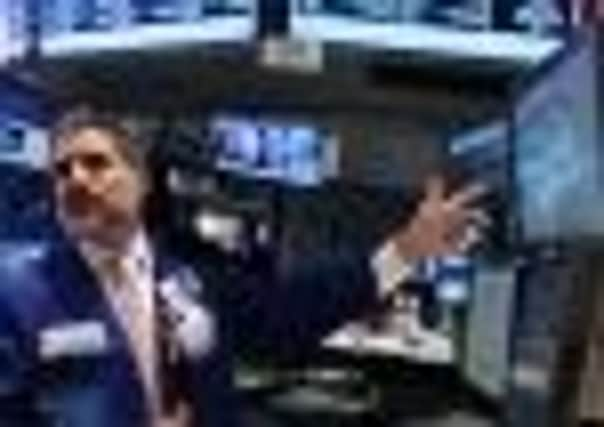FTSE reaches 6,000 mark as markets rebound on ‘fiscal cliff’ news


Britain’s top share index, which had been unable to break through the psychological barrier since July 2011, jumped 2.2 per cent yesterday to close at an 18-month high of 6,027.37 after hitting an intra-day high of 6,044.6.
Shares had made gains towards the end of last year as the threat of a full-blown crisis in the eurozone faded, but the possibility the world’s largest economy being plunged into recession by a toxic combination of tax rises and spending cuts limited traders’ enthusiasm.
Advertisement
Hide AdAdvertisement
Hide AdThe last-minute agreement in Washington gave a huge boost to mining and commodity stocks, which are perceived as risky investments because their value is dependent on the strength of the wider economy.
Banks were also higher, with taxpayer backed pair Lloyds 3.7 per cent higher at 49.4p and Royal Bank of Scotland up 3 per cent at 334.2p.
David Jones, chief market strategist at IG, said: “6,000 was a major hurdle for the FTSE 100 throughout 2012, but it was swiftly bypassed on only the first trading day of the new year. A weight has been lifted from investors’ minds.”
Other European indices also made gains, with France’s Cac 40 and Germany’s Dax each adding more than 2 per cent.
US markets, which had already been in celebratory mood on New Year’s Eve amid rumours of a deal in the Senate, opened higher again after it was passed by the House of Representatives.
The Republican-controlled House finally approved a bill late on Tuesday that will raise taxes only on top US earners, fulfilling President Barack Obama’s re-election promise and avoiding $600 billion (£370bn) in broader-based tax hikes and spending cuts.
While markets welcomed the deal, there was a degree of pessimism among strategists who highlighted that it did nothing to resolve further political showdowns on the budget in coming months.
The vote averted immediate austerity measures, such as tax hikes for almost all US households, but it didn’t resolve other political showdowns on the budget. Spending cuts of $109 billion in military and domestic programmes were only delayed for two months.
Advertisement
Hide AdAdvertisement
Hide AdJones warned: “There is the possibility that the whole dismal experience will be repeated in two months’ time.
“For now, however, investors can relax, safe in the knowledge that markets won’t be dependent on every offhand comment from Washington.”
Mike McCudden, head of derivatives at Interactive Investor, said the London market could make further gains if the US cements a solid fiscal deal later this year and the situation in Europe improves further.
He said: “The resolution of the fiscal cliff is clearly the big driver here, but – critically – we need to try and sustain this rally and it’s going to be difficult to call the uptrend until we see a break above the big technical barrier around the 6,100 level, last tested in February 2011.
“A breach of 6,100 could see a significant move higher but with much left to be resolved not only in the US but also the eurozone, it is looking highly unlikely at the current juncture.”
But Colin Cieszynski an analyst at CMC Markets, pointed out that most House Republicans actually voted against the deal, which had enjoyed bipartisan support in the Senate.
“The fiscal cliff deal essentially represents a big EU-style kicking of the can down the road.
“It remains to be seen how long it will take for traders to realise that we will be back at this again shortly – but, for now, markets have gone into ‘risk on’ mode.”